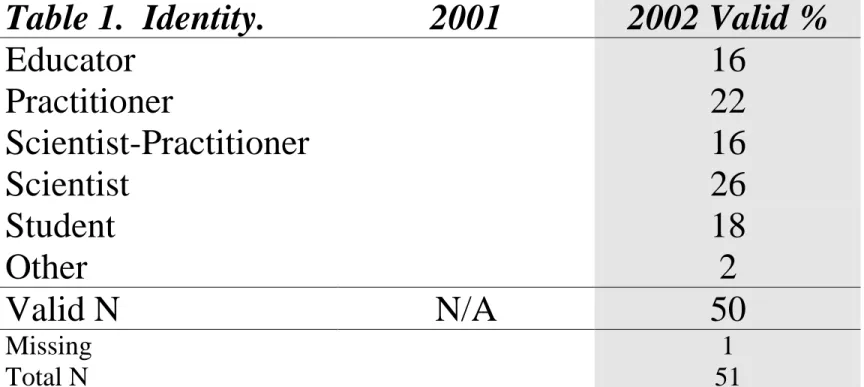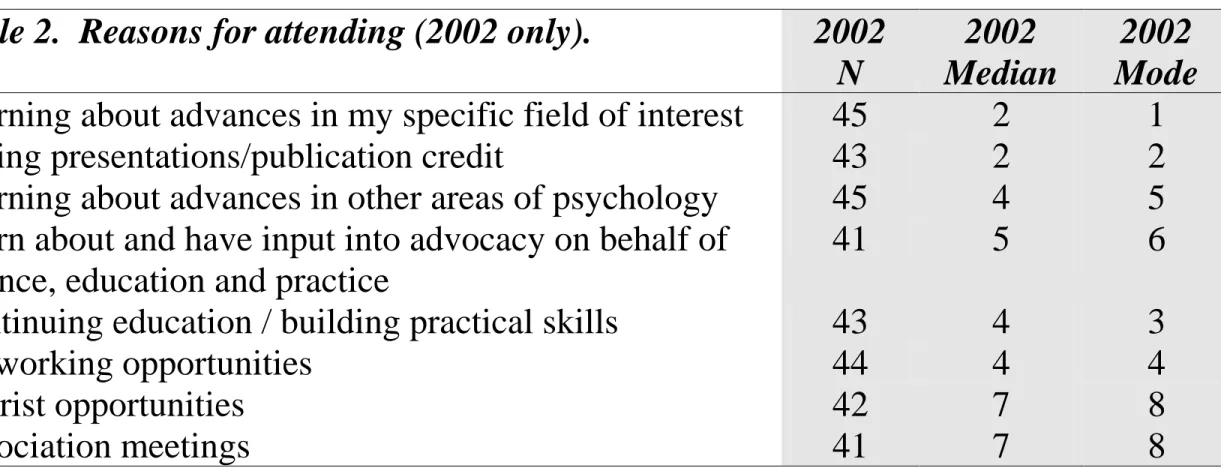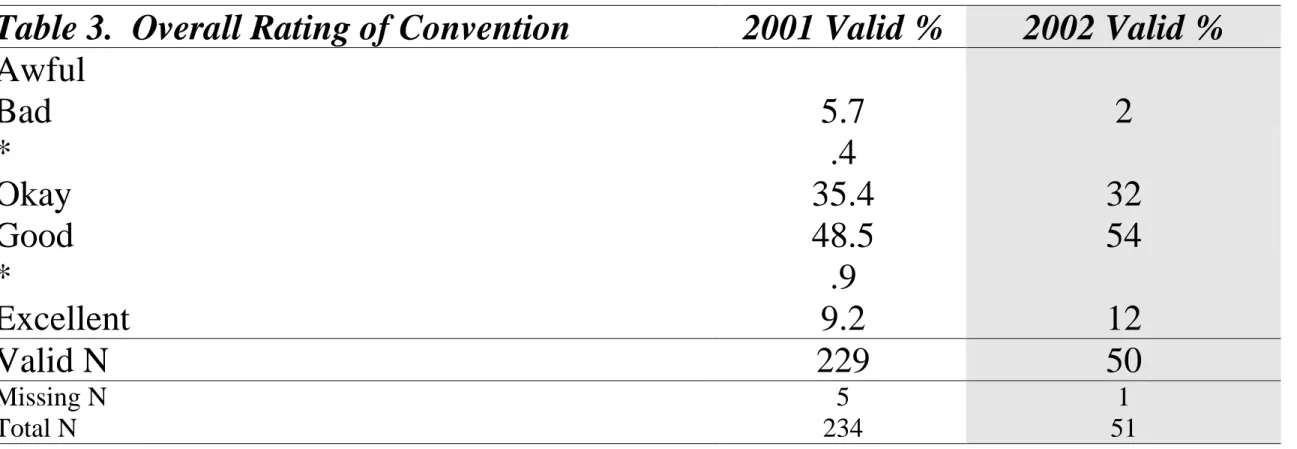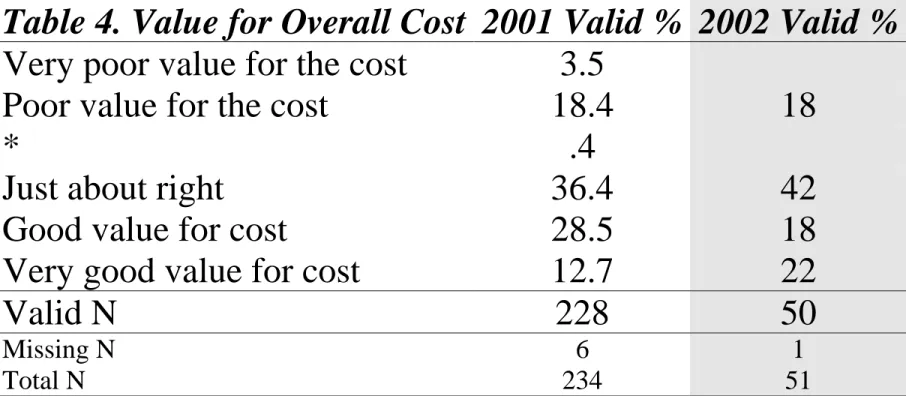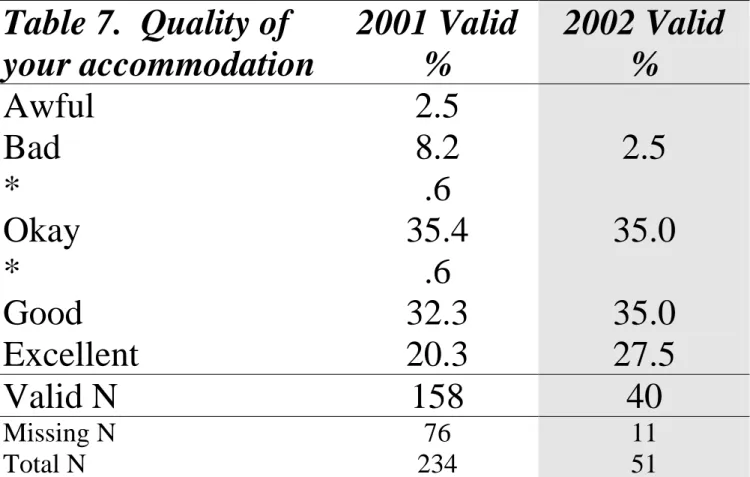Publisher’s version / Version de l'éditeur:
Vous avez des questions? Nous pouvons vous aider. Pour communiquer directement avec un auteur, consultez la
première page de la revue dans laquelle son article a été publié afin de trouver ses coordonnées. Si vous n’arrivez pas à les repérer, communiquez avec nous à PublicationsArchive-ArchivesPublications@nrc-cnrc.gc.ca.
Questions? Contact the NRC Publications Archive team at
PublicationsArchive-ArchivesPublications@nrc-cnrc.gc.ca. If you wish to email the authors directly, please see the first page of the publication for their contact information.
https://publications-cnrc.canada.ca/fra/droits
L’accès à ce site Web et l’utilisation de son contenu sont assujettis aux conditions présentées dans le site LISEZ CES CONDITIONS ATTENTIVEMENT AVANT D’UTILISER CE SITE WEB.
The 64th Annual Convention of the Canadian Psychological Association [Proceedings], pp. 1-9, 2003-06-01
READ THESE TERMS AND CONDITIONS CAREFULLY BEFORE USING THIS WEBSITE.
https://nrc-publications.canada.ca/eng/copyright
NRC Publications Archive Record / Notice des Archives des publications du CNRC :
https://nrc-publications.canada.ca/eng/view/object/?id=5a4d77b6-f13a-49c4-9ebf-cd1175cded66 https://publications-cnrc.canada.ca/fra/voir/objet/?id=5a4d77b6-f13a-49c4-9ebf-cd1175cded66
NRC Publications Archive
Archives des publications du CNRC
This publication could be one of several versions: author’s original, accepted manuscript or the publisher’s version. / La version de cette publication peut être l’une des suivantes : la version prépublication de l’auteur, la version acceptée du manuscrit ou la version de l’éditeur.
Access and use of this website and the material on it are subject to the Terms and Conditions set forth at
How was it for you? Two years of CPA convention evaluation
“How was it for you”? Two years of CPA convention evaluations
Veitch, J.A.; Ross, A.S.; Charles, K.E.; Wells, B.M.
NRCC-46421
A version of this document is published in / Une version de ce document se trouve dans: 64th Annual Convention of the Canadian Psychological Association, Hamilton, Ont. June
12-14, 2003, pp. 1-9
"How was it for you?"
Two years of CPA Convention Evaluations
Jennifer A. Veitch Abraham S. Ross Kate E. Charles Barbara M. Wells
National Research Council of Canada
Memorial University of Newfoundland
National Research Council of Canada
York University
Presented at the 64th Annual Convention of the Canadian Psychological Association, Hamilton, ON, June 12-14, 2003.
Abstract: Canadian Psychology, 44(2a), 2003, p. 49.
Abstract
The CPA Conventions in 2001 and 2002 were held on university campuses at opposite ends of the country (Laval University, Ste-Foy, QC, and the University of British Columbia in Vancouver, BC). In both years
systematic evaluations were undertaken, in which semi-random samples of convention attendees were asked to respond on-site to surveyors. This survey technique should result in more valid data about attendees' opinions of the convention arrangements than the informal self-report technique used previously. The results of the 2001 survey showed that attendees were generally pleased with the convention, but not pleased with the site; overall, there was no clear guidance on the acceptability of university sites as compared to hotel/convention centres. This poster will compare the results of the 2002 survey to the 2001 survey, and provide recommendations to the Convention Committee about possible changes in policy or procedure that might lead to further improvements in the CPA convention experience for members and non-members alike.
Introduction and Method
In 2001, the CPA Convention committee identified a need for regular, systematic evaluations of the convention to provide information in support of convention policy and programming decisions. A sub-committee was
struck for this purpose. Methods from program evaluation were identified as being relevant to this
investigation. Thus far, data from 2001 and 2002 convention attendees are available, and are compared in this presentation.
In both years, a closed-ended survey instrument was completed by randomly-selected convention attendees (in English and French in 2001, in English only in 2002). The surveys were administered by student and
non-student volunteers. Surveyors invited every nth person (usually the 5th) who passed by a fixed location to
complete the survey. CPA Board members, Convention Committee members, and CPA staff were excluded from participation. The survey was completed on-site and returned to the surveyors at the time. This method ensured that data were collected while the convention experience was fresh. Although some additional surveys were completed by attendees who independently volunteered, these data are not reported here. Random
selection from the population should provide a sample that is representative of the convention attendee
population; those who are motivated to volunteer might differ from this population in systematic ways. There were more surveyors in 2001 than in 2002, which resulted in a larger and more representative sample (N=234, versus N=51).
This presentation covers key results from 2001 and 2002. For complete results, consult the evaluation reports themselves, on the CPA WWW site at: http://www.cpa.ca/ConEvaluations.htm.
Results
Who Attends, and Why?
In both years, respondents were asked to identify themselves as primarily practitioners, scientist-practitioners, scientists, educators, or students. Many respondents found it difficult to place themselves in one category only, and in 2001 the data from this question were unusable (Table 1). A re-phrasing in 2002 seemed to be easier to answer, and revealed the following distribution:
Table 1. Identity. 2001 2002 Valid %
Educator 16 Practitioner 22 Scientist-Practitioner 16 Scientist 26 Student 18 Other 2 Valid N N/A 50 Missing 1 Total N 51
In 2002 only, respondents were asked to indicate in rank order the importance of 8 reasons for attending the convention (Table 2). Learning about one’s area of interest and presenting one’s work are the leading reasons for convention attendance.
Table 2. Reasons for attending (2002 only). 2002 N
2002 Median
2002 Mode
Learning about advances in my specific field of interest 45 2 1 Giving presentations/publication credit 43 2 2 Learning about advances in other areas of psychology 45 4 5 Learn about and have input into advocacy on behalf of
science, education and practice
41 5 6
Continuing education / building practical skills 43 4 3
Networking opportunities 44 4 4
Tourist opportunities 42 7 8
How is the convention?
In both years, respondents were asked the same questions about their overall opinions of the convention. These are presented in side-by-side comparison in the following tables (Tables 3 – 5).
Despite the small sample for 2002, the results are in good agreement. Respondents generally rate the
convention as being “good” or “excellent” and as giving good value in relation to its cost. Presentation quality is good or better, although it appears that the 2002 respondents might have been less impressed by its quality than in 2001.
Table 3. Overall Rating of Convention 2001 Valid % 2002 Valid %
Awful Bad 5.7 2 * .4 Okay 35.4 32 Good 48.5 54 * .9 Excellent 9.2 12 Valid N 229 50 Missing N 5 1 Total N 234 51
Table 4. Value for Overall Cost 2001 Valid % 2002 Valid %
Very poor value for the cost 3.5
Poor value for the cost 18.4 18
* .4 Just about right 36.4 42
Good value for cost 28.5 18 Very good value for cost 12.7 22
Valid N 228 50
Missing N 6 1
Total N 234 51
Table 5. Presentation Quality
Very poor (Valid %) Poor (Valid %) Okay (Valid %) Good (Valid %)
Very Good (Valid %) Valid N 2001 2002 2001 2002 2001 2002 2001 2002 2001 2002 2001 2002 Invited talks 1 2 3.4 13 6.9 27 20.7 57 69 102 29 Symposia 1 2.4 16 31.7 35 34.1 48 31.7 122 41 Posters .6 1 7.7 12 28.2 45 38.5 41 25.6 150 39 Workshops 4.5 45.5 50 22 Conversation Sessions 1 23 14.3 45 42.9 30 42.9 69 21 Pre-conv. workshops 9.1 18.2 1 26 36.4 63 36.4 30 11
Where should it be?
Both 2001 and 2002 conventions were held on university campuses. The Board’s decision to make this
experiment responded to member demand. In 2001, the principal accommodation was off-campus in the nearby suburb; in 2002 the principal accommodation was on the UBC campus. In both years we collected targeted data on both accommodation and the convention venue. Although data from hotel/convention centre sites is not yet available (planned for 2003), it is clear that not all university campuses are alike in their suitability for a
convention. The 2001 site received many more low ratings than the 2002 site, both for the convention itself and for accommodation (Tables 6 and 7). In addition, the accommodation cost was lower for many people in 2002 than in 2001, probably because of the availability of on-campus accommodation (Table 8).
Table 6. Overall Quality of Convention Venue 2001 Valid % 2002 Valid %
Awful 4.7 Bad 18.6 8.3 * 1.7 Okay 36.6 52.1 * .6 Good 32.0 22.9 Excellent 5.8 16.7 Valid N 172 48 Missing N 62 3 Total N 234 51
Table 7. Quality of your accommodation 2001 Valid % 2002 Valid % Table 8. Cost of accommodation 2001 Valid % 2002 Valid % Awful 2.5 Nothing 11.6 15.9 Bad 8.2 2.5 $50 or less 16.9 15.9 * .6 $51-$100 19.2 40.9 Okay 35.4 35.0 $101-$150 39.5 15.9 * .6 $151-$200 12.8 11.4 Good 32.3 35.0 > $200 Excellent 20.3 27.5 Valid N 158 40 Valid N 172 44 Missing N 76 11 Missing N 62 7 Total N 234 51 Total N 234 51
In 2002 for the first time we asked explicitly about the preferred type of venue for future conventions. There is no clear consensus on this issue, although a majority appears to favour convention centres or hotels (Table 9).
Table 9. Venue for future conventions 2001 Valid % 2002 Valid %
Hotel 34.0 Convention Centre 17.0 University Campus 29.9 No preference 19.1 Valid N N/A 47 Missing N 4 Total N 51
Discussion
The CPA Convention appears to be serving its attendees well in its present configuration, although there is room for improvement. In considering how to change or to improve the convention, attention should be paid to preserving the qualities that lead members to attend, particularly to allow people to present their own work and to learn about their own specific areas. CPA faces strong competition for convention attendance from the many speciality-specific psychology conferences and meetings, which can also fulfil the same needs for many people. Whether the convention serves all CPA members well is a matter for a separate investigation that includes those not present at the convention in any given year. The reasons for which these people choose not to attend CPA also need attention.
One of the most pressing questions for the Convention Committee concerns whether to hold the event on a university campus or in a hotel/convention centre. Data on this point show that the 2002 UBC venue was
acceptable or better; although shabby in appearance, people appreciated the convenience of having events
clustered close together. However, they did not like being far from downtown attractions. Taken together with the 2001 evaluation, it appears that university venues might be acceptable if they offer the convenience of one location together with adequate accommodations; but if the convention itself is not close to the accommodations (as in 2001), dissatisfaction results. In short, some universities might be suitable convention venues, and others will not. The 2003 data should provide further insight into this question.
